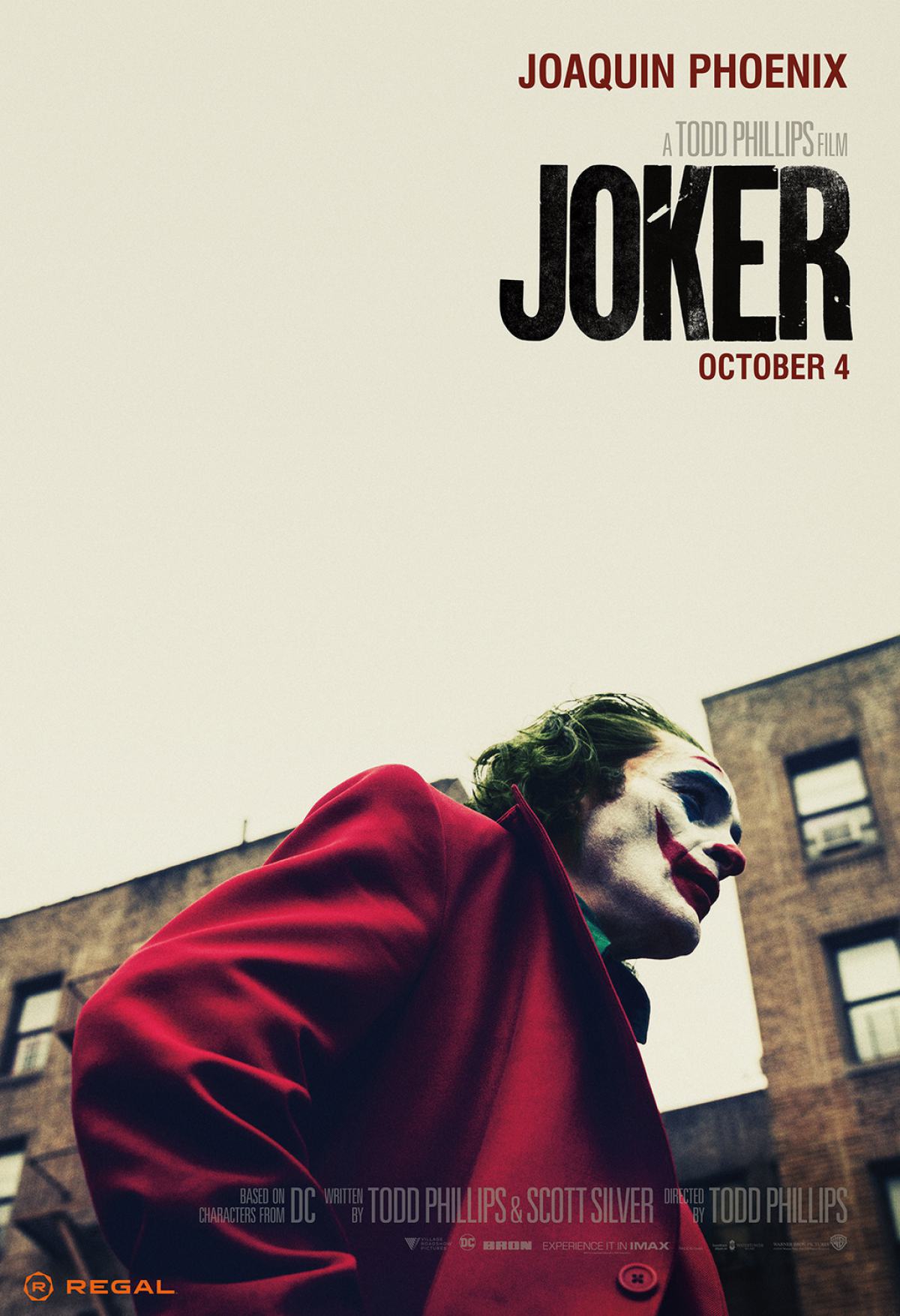
****
A social outcast, Arthur Fleck traverses the unforgiving streets of Gotham by day and cares for his sick mother by night. As tensions in the City rise, a series of drastic events will change Arthur's life forever.
You've seen the posters, you've heard the awards season buzz and probably read a little of the controversy too - but Joker has finally arrived on the big screens. An arguable superhero movie (we are in the DC Universe after all), but with less of the overblown action set pieces and more of the grit of Logan, Todd Phillips' exploration into the Joker's origins has already proven as divisive as it is praise-worthy, and it's easy to see why!
However, before we dive down into the contentious aspects of the film, let's start with the unquestionably brilliant performance from Joaquin Phoenix. Emaciated, gangly and apparently awkward in his own skin, Phoenix imbues the central character with an unsettling humanity: at times we want to feel sorry for him, but at other points, we're repulsed and horrified by his actions. Sometimes the very structure of his face seems to change, from soft and weak to angular and threatening - all in a matter of moments. It's an incredibly physical performance, and it's clear that Phoenix has given his all in every scene. There's just the right amount of tenderness and vulnerability here too, which invites the viewer to form some kind of emotional connection with this damaged individual, a feeling which is later undeniably unnerving. The soundtrack is to be applauded too, with the synergy of haunting orchestral pieces sitting alongside strangely haunting snippets of the Frank Sinatra classics 'Send in the Clowns' and 'That's Life'. Joker also looks outstanding; from the grimy, graffiti-scrawled streets and subways, to the claustrophobic, shabby interiors, each shot adds to the truly oppressive energy that seeps from the screen.
The BBFC classified Joker as a 15, citing 'strong bloody violence [and] language' behind the decision, and yet I would argue that this is a far too lenient age rating. From the very first scene, a feeling of unease begins - and it's a notion that I just couldn't shake. Before the violence even begins in full, we're unsettled by pornographic images of women taped into Fleck's journal, an unforgiving environment and an undertone of socio-political unrest that feels all too familiar. Then there's the bloody deaths and unflinching beatings... It's not that I found the violence to be gratuitous, however - it's more that the film tries to excuse the violence. By humanising the character and by giving him a truly horrendous childhood, it feels as though the film is saying that it's OK for him to behave in this way. In one scene, Fleck brutally attacks an ex-colleague, only to tell the third character that he'won't hurt him because he 'was always good to him'. It's this sort of justification that left a bitter taste in my mouth. This 'mishandling' also coincides with the problematic depiction of mental illness. At the beginning, we see Fleck in a counselling session, shortly before picking up a variety of prescription drugs. In his journal, he scribbles the phrase 'mental illness', and the camera performs its close-up on the black scrawl. Later, we make an obligatory visit to Arkham Asylum, where one inmate is seen screaming and struggling against his restraints. Similarly, Fleck later announces that he's given up on his medication, shortly before carrying out a violent act. It's a theme that's poorly dealt with, as it seems to both vilify mental illness and provide Fleck with another excuse for his violence - hardly a progressive depiction!
Last week, protesters in Hong Kong were banned from wearing face masks on marches. In Joker, mobs of angry citizens take to the streets in clown masks, rioting in an 'anti-rich' movement that reflects the ubiquitous gap between the Haves and the Have Nots. There's always been the argument that art reflects life and vice versa, but whether it's wise to release Joker at a time when our own society feels as fractious as the one depicted on screen is open for debate. As a work of art, Joker undeniably succeeds, but the ambiguity of the message may come back to haunt it.
Comments
Post a Comment